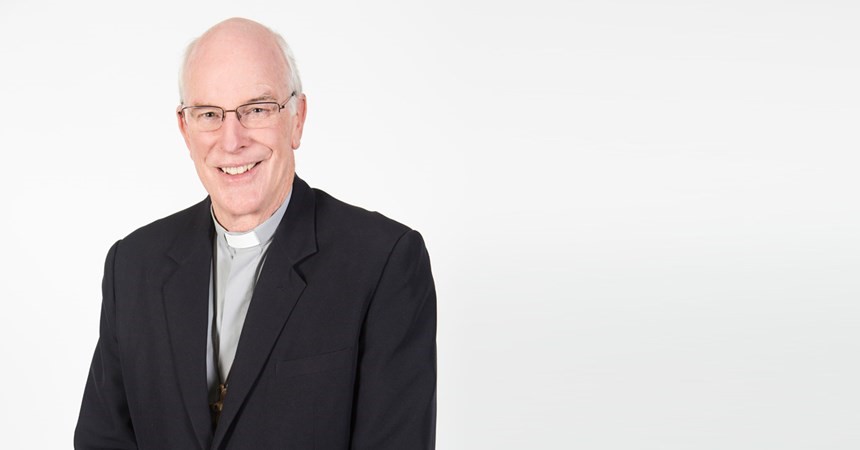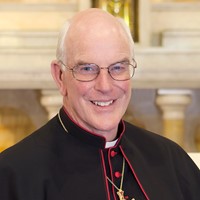This time I’m in PNG for the meeting, held every three or four years, of the Federation of Catholic Bishops’ Conferences of Oceania (FCBCO), comprising the bishops of PNG, Australia, NZ and the far-flung island nations, French- and English-speaking, that make up CEPAC, the Conférence des Évĕques du Pacifique. There are 80 or so of us and Port Moresby is on high alert. In November they will host the APEC meeting, possibly with Trump and Putin, and this is a great opportunity for the government and local security people to practise. The paramilitary police escort on our jaunts across town and the occasional helicopter above do seem a bit more than a mob of bishops would normally be accorded. The hotel’s own security is no less obvious but, apparently by design, less intimidating. The delightful Sebastian who guards the main door is a prime example; a small, broad-smiling Chimbu man, he is on for a chat and very happy to show you the workings of his pump-action Winchester shotgun. Friendly forces!
The heading of this article is the subtitle of the Conference. The Pacific is a region with its own troubles, but ‘A Sea of Possibilities’. In large part, the program is designed for the real Pacific bishops to share their troubles with the bishops of the developed nations, Australia and NZ. The biggie is climate change and the rising oceans. Sea levels around the world do not rise evenly, and the mid-Pacific is inundation central. The small coral islands, and hence some entire countries, are under threat and some have already become uninhabitable. The Archbishop of Suva is a bit of a star in this discussion, having recently provided land in Fiji for the population of a small island that has already become uninhabitable. There’s no doubt in this region about what has to happen about burning coal.
‘Climate refugees’ are not, however, the only refugees of concern. The Governor of the Port Moresby region gives Australia a fair old serve on the Manus Island debacle. PNG always knew it was an immoral ‘solution’, he says, but the Australians asked and they are our friends. But now they’ve broken all promises and walked away, leaving PNG to cope as best it can. Still, it’s a minor issue compared with the problem of the refugees from Indonesian West Papua who have flooded into the border zones of the Western Highlands. The Indonesians have no historic, ethnic or religious connection with the people of West Papua, he insists, and no right to be installing settlers from Java, but Indonesia is a big country and the West is letting them do what they like. Again, PNG is left to cope with the fallout. Finally, the PNG bishops are concerned about sea-bed mining. It’s an untested technology that will be trialled, by European miners, in the seas off New Ireland where presumably, if it causes an environmental disaster, only a few unimportant countries will be affected. They want us to know what’s going on.
They want us to know and to care. Perhaps in Australia what the church thinks and says is no longer of much importance, but that is not the case in the Pacific. PNG, the Prime Minister tells us at the Conference dinner, is a deeply Christian country. Pope Francis’ encyclical Laudato Si’, on ‘care for our common home’ and the need for ‘ecological conversion’, is much quoted. PNG is more than half Catholic and would be unworkable without the church’s schools, clinics and aid services. They are enormously grateful that the Vatican Secretary of State, Cardinal Parolin, has come to Moresby for this conference. Here is their voice being heard on the world stage; the church can speak for them in the councils of the great, as the Pope has already done. There’s an innocence about their confidence in the influence of the church, but I do hope they are right and we can do something. The Pacific, and its wonderful peoples, are a Sea of Possibilities.

